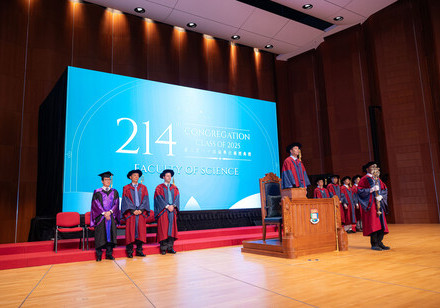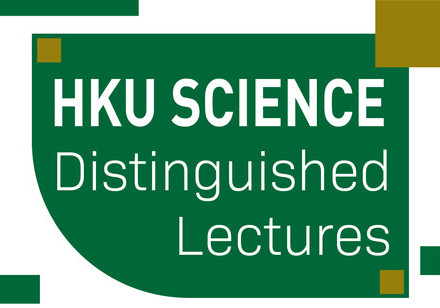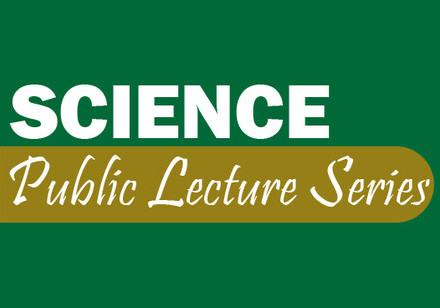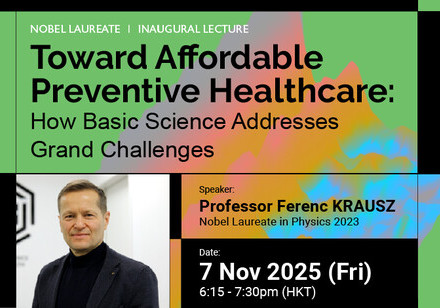Distinguished Lecture - Unveiling the Dark Universe
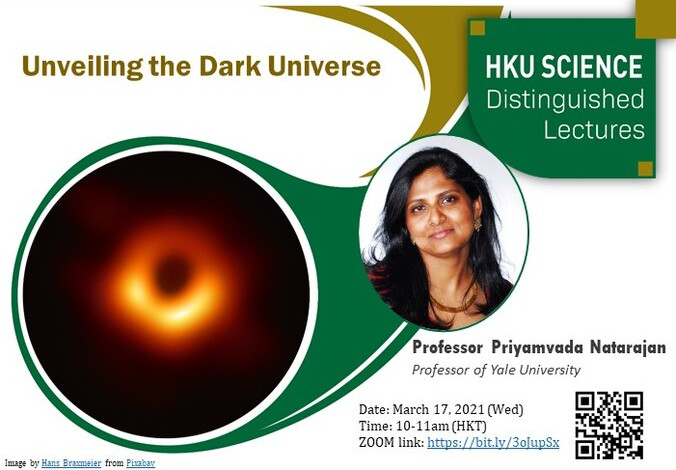
- Date & Time
- March 17, 2021 (Wed) | 10-11am (HKT)
- Venue
- ZOOM online lecture (https://bit.ly/3oJupSx)
- Speaker
- Professor Priyamvada Natarajan
Professor of Astronomy and of Physics, Yale University
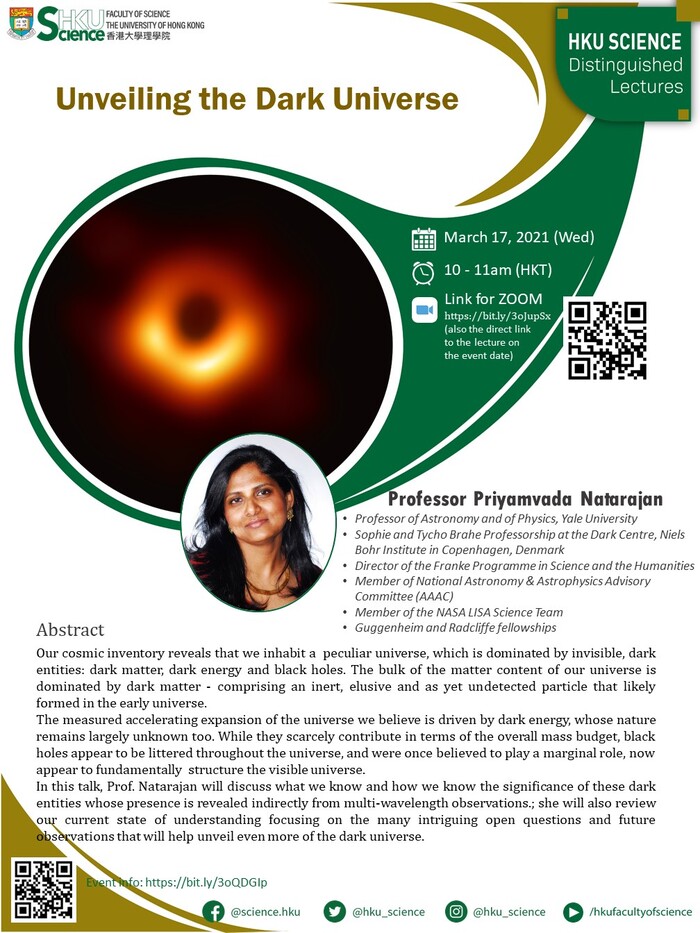
Abstract
Our cosmic inventory reveals that we inhabit a peculiar universe, which is dominated by invisible, dark entities: dark matter, dark energy and black holes. The bulk of the matter content of our universe is dominated by dark matter - comprising an inert, elusive and as yet undetected particle that likely formed in the early universe.
The measured accelerating expansion of the universe we believe is driven by dark energy, whose nature remains largely unknown too. While they scarcely contribute in terms of the overall mass budget, black holes appear to be littered throughout the universe, and were once believed to play a marginal role, now appear to fundamentally structure the visible universe.
In this talk, I will discuss what we know and how we know the significance of these dark entities whose presence is revealed indirectly from multi-wavelength observations. I will review our current state of understanding focusing on the many intriguing open questions and future observations that will help unveil even more of the dark universe.
Playback video:
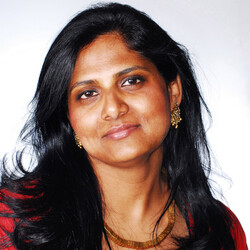
Speaker Professor Priyamvada Natarajan
Professor of Astronomy and of Physics, Yale University
Priyamvada Natarajan’s research is focused on exotica in the Universe—dark matter, dark energy and black holes. Priya’s research has focused on confronting and testing theoretical ideas with observational data in astrophysics. She is noted for seminal contributions to two of the most challenging problems in cosmology: mapping the distribution of dark matter and tracing the growth history of black holes. Her work using gravitational lensing has provided a deeper understanding of the granularity of dark matter in clusters of galaxies and offers a novel way to unravel the nature of dark matter. Natarajan also works on the assembly and accretion history of black holes – and has made key contributions to the formation, fueling and feedback from them. One of the proposers of the direct collapse channel for the formation of early massive black hole seeds, she developed the framework to embed them into the standard galaxy formation and assembly in CDM models. Her work has enabled making concrete predictions for upcoming and future missions – namely, James Webb, Nancy Roman and LISA. A professor in the Departments of Astronomy and Physics at Yale University, Priyamvada is also the Director of the Franke Programme in Science and the Humanities. Till recently she was the Chair of the Division of Astrophysics of the American Physical Society and currently serves on the National Astronomy & Astrophysics Advisory Committee (AAAC) that advises NASA, NSF and DoE. She is also an active member of the NASA LISA Science Team. Recipient of many awards and honors in recognition of her contributions to science, including the Guggenheim and Radcliffe fellowships, she also holds the Sophie and Tycho Brahe Professorship at the Dark Centre, Niels Bohr Institute in Copenhagen, Denmark and an Honorary Professorship at the University of Delhi, India. Priyamvada has undergraduate degrees in Physics and Mathematics from MIT. She is also interested in the history and philosophy of science as well as technology and public policy and was enrolled in the MIT Programme in Science, Technology & Society, where she was awarded a Master’s Degree (S.M.), and the MIT Programme in Technology and Public Policy. She did her graduate work in theoretical astrophysics at the Institute of Astronomy, University of Cambridge in England, where she was a member of Trinity College and was elected to a Title A Research Fellowship. She was the first woman in Astrophysics to be elected a fellow of Trinity College, Cambridge. Deeply invested in the public understanding of science, she serves on the Advisory Board of NOVA ScienceNow and Scientific American. She is also the author of the critically acclaimed book Mapping the Heavens: The Radical Scientific Ideas that Reveal the Cosmos. She and her work have been featured in many news outlets including the New York Times, Quartz, BBC, CNN, New York Review of Books, PBS-NOVA, NPR, Science Friday and Quanta Magazine to name a few.


